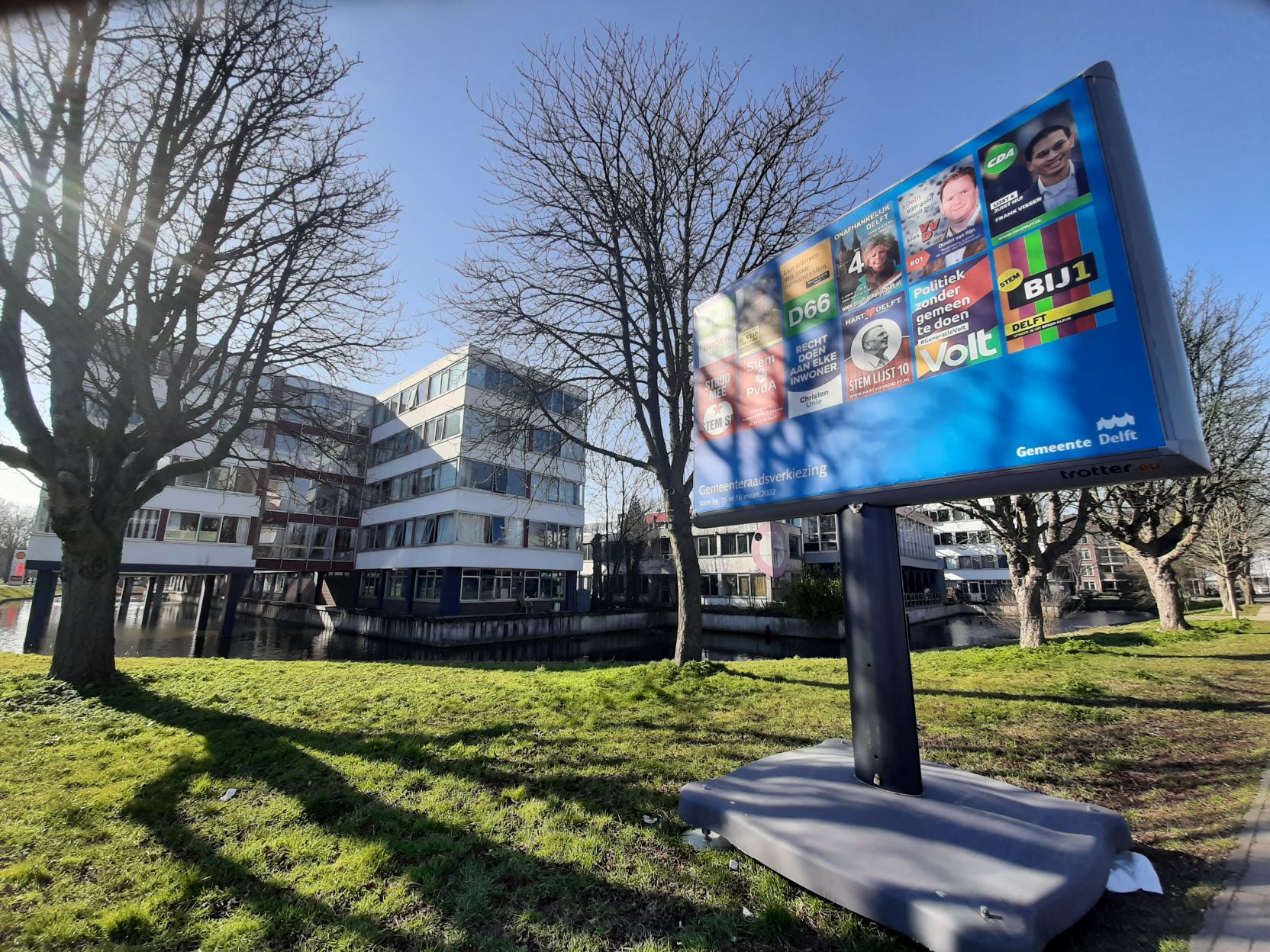You may already have seen the big billboards with campaign posters. This week are municipal council elections throughout the Netherlands. Here’s what you need to know.
Billboard near the student housing at the Krakeelpolderweg. (Photo: Katja Wijnands)
What are the gemeenteraadsverkiezingen?
The Netherlands is composed of approximately 380 municipalities and each municipality has its own municipal council. Once every four years elections to the municipal councils (gemeenteraadsverkiezingen) are held. During these elections – which are held on Monday 14, Tuesday 15 and Wednesday 16 March – you chose who will have seats on the municipal council. The size of a municipal council depends on the number of inhabitants of the municipality. Delft has 39 seats. The municipal council appoints the aldermen who make up the municipal executive of mayor and aldermen. They are responsible for the day-to-day administration of the municipality. Each municipality also has a mayor. Mayors are appointed by the Dutch Government, following a procedure in which the municipal council has a voice.
What’s at stake?
Apart from democracy? A lot actually. Municipal councils and the municipal executive of mayor and aldermen take a lot of decisions that affect your daily life. For example, they have a say in what housing should be built and where, how many schools the municipality can have, how budgets for youth care are spent, how much you pay for parking in the city centre, until what time shops and bars are allowed to open their doors and so on.
What political parties are standing in Delft?
Twelve political parties: Bij1, ChristenUnie, CDA, D66, GroenLinks, Hart voor Delft, Onafhankelijk Delft, PvdA, SP, STIP, Volt and VVD. You can read more about their candidates and their election programmes on the website of the Municipality of Delft (in Dutch). Delta interviewed the candidates of nine political parties about student housing and the growth of TU Delft. You can read the interviews here.
Can I vote and if so, how?
Your eligibility to vote depends on whether you are an EU citizen or a non-EU citizen. As an EU citizen, you must meet the following requirements:
- you must be 18 years of age or over
- you may not be debarred from voting
- you must be a resident of a Dutch municipality on Election Day, as evidenced by the Personal Records Database.
As a non-EU citizen you must meet the requirements listed above and to have legally resided in the Netherlands for at least five years on Election Day.
If you’re eligible to vote, you should already have received an invitation to cast your vote. The invitation includes a poll card and is sent to your home address no later than 14 days prior to election day. To cast your vote you will need to show the poll card and a passport or ID card at the polling station of your choice within the municipality’s borders. If you are unable to cast your vote in person on election day, you may have your vote cast by proxy. Most polling stations are open from 7:30 to 21:00. This is a list of the polling stations in Delft.
Do you have a question or comment about this article?
a.m.debruijn@tudelft.nl


Comments are closed.